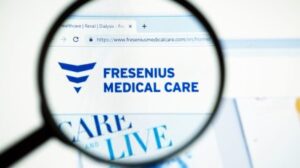
WASHINGTON, D.C. – In a significant move, Robert F. Kennedy Jr.’s revamped vaccine advisory panel has recommended a novel treatment to prevent respiratory syncytial virus (RSV) in infants, marking a potential shift in pediatric healthcare.
Breaking: New RSV Treatment Approved
The newly constituted advisory committee has endorsed a monoclonal antibody named clesrovimab, branded as Enflonsia by Merck. This decision follows the recent approval by the Food and Drug Administration (FDA) just two weeks prior.
Immediate Impact
The panel’s decision could lead to widespread use of Enflonsia among infants, potentially reducing RSV-related hospitalizations. RSV remains the leading cause of hospitalization among U.S. infants, with most contracting the virus within the first year of life.
RSV hospitalizes between 2% and 3% of infants, most without underlying health conditions.
Key Details Emerge
The vote by the Centers for Disease Control and Prevention’s advisory committee on immunization practices (ACIP) was delayed by a day, following intense scrutiny from its new members. These members, selected by Kennedy, share ideological views with the former Trump health secretary, who is critical of “overmedicalization.”
Dr. Retsef Levi, a professor at MIT, expressed skepticism about the treatment, citing concerns over its implications for infants and ultimately voting against it.
Industry Response
The medical community has largely criticized Kennedy’s overhaul of the ACIP, which involved replacing its 17 members with hand-picked allies. The meetings have become essential viewing for those in scientific and medical fields.
Despite the controversy, the panel voted to recommend clesrovimab for infants younger than eight months during RSV season and to include it in the Vaccines for Children program.
In the 2024-2025 season, 57% of infants were either born to vaccinated mothers or received monoclonal antibodies at birth, reducing hospitalizations by 30%-40%.
What Comes Next
The panel’s decision is just one part of its agenda, with a more contentious discussion on thimerosal in influenza vaccines scheduled. The preservative, a focal point for anti-vaccine advocates, has been absent from childhood vaccines since the early 2000s.
Meanwhile, the implications of this new RSV treatment could be profound, as experts weigh the benefits against potential risks.
Background Context
Kennedy’s unilateral decision to replace the ACIP members in June, citing conflicts of interest, has drawn widespread condemnation. The panel now operates with just seven members, following the resignation of Dr. Michael Ross amid a financial review.
The committee’s role in advising on vaccine distribution and interventions remains critical, with its latest recommendation poised to impact infant healthcare significantly.
Expert Analysis
According to Adam McNeil, CDC deputy branch chief for epidemiology in respiratory viruses, the primary goal is to protect infants during their most vulnerable months.
“Part of what we want to do is protect them when they’re most vulnerable,” McNeil stated.
Regional Implications
The introduction of Enflonsia could reshape pediatric healthcare across the United States, offering a new layer of protection against RSV for infants.
As the healthcare community continues to debate the panel’s decisions, the focus remains on ensuring the safety and well-being of the nation’s youngest population.




